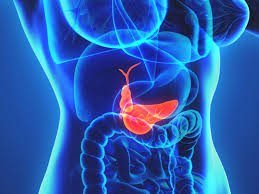Gallbladder—The Little Organ You Forget (Until It Acts Up)
For such a tiny little organ that the body can usually live quite well without, your concierge family primary care doctors at MD 2.0 in Jupiter, Florida, are often amazed at how many problems it can cause.
The gallbladder is a small, pear-shaped muscular sack located just below the liver. Its function is to store bile secreted by the liver. It releases the bile into the small intestine to neutralize acids and help in the breakdown of fats during the digestion process.
Problems with the gallbladder can be sneaky, with symptoms of malfunction often masquerading as something else. A gallbladder attack, for example, can be mistaken for a heart attack because frequently the pain in the chest and/or upper abdomen is similar. That’s why it’s important to have any suspected chest or abdominal pain evaluated at once.
The primary problem caused by a malfunctioning gallbladder is gallstones, which can lead to a gallbladder attack.
Common symptoms of a gallbladder attack include:
- Severe abdominal pain
- Pain that may extend beneath the right shoulder blade or to the back
- Chest pain
- Pain that feels dull, sharp, or cramps
- Pain that worsens after eating a heavy meal, especially fatty or greasy foods
- A feeling of fullness in the abdomen
- Pain that increases when you take a deep breath
- Heartburn, indigestion, or excessive gas
- Light or chalky colored stools
- Nausea, vomiting, or diarrhea
- Dizziness
- Headache over the eyes, especially the right eye
- Yellowing of the skin or the whites of the eyes
To confuse the issue even further, many people with gallstones never experience any pain at all.
Gallstones aren’t really stones, but hardened deposits of bile salts that can become lodged in the bile duct and cause a blockage. They can be as small as a grain of sand, or as large as a golf ball. If they are large enough to prevent the gallbladder from functioning, they can not only result in pancreatitis (inflammation of the pancreas) but lead to other gallbladder diseases.
Often gallstones will often eventually pass on their own. If not, they may require surgery to remove the gallbladder, usually through laparoscopic (so-called “band-aid”) surgery. As mentioned above, most people can live a perfectly normal life without the gallbladder, though they may experience difficulty digesting fatty or greasy foods.
If you want to keep your gallbladder healthy, the steps are the same as keeping the rest of your body healthy. Maintain a normal weight and eat a well-balanced diet. This includes fresh, fiber-rich fruits and vegetables, whole grains, nuts, lean meat, fish, poultry, and low-fat dairy. Too much cholesterol in the bile can increase the likelihood of gallstones. Drink plenty of water to help hydrate the bile. And avoid the usual culprits: fatty foods, white flour, processed snacks, sugar, refined carbohydrates, and frozen or canned fruits and vegetables.
Here’s a little good news: Some studies have shown that coffee and moderate amounts of alcohol (no more than two drinks per day) may actually reduce the risk of gallstones.
If you’re experiencing any of the symptoms listed above, see us for an evaluation. We can rule out other medical issues that may resemble gallbladder problems, as well as provide guidance on the best way to resolve the issue.

